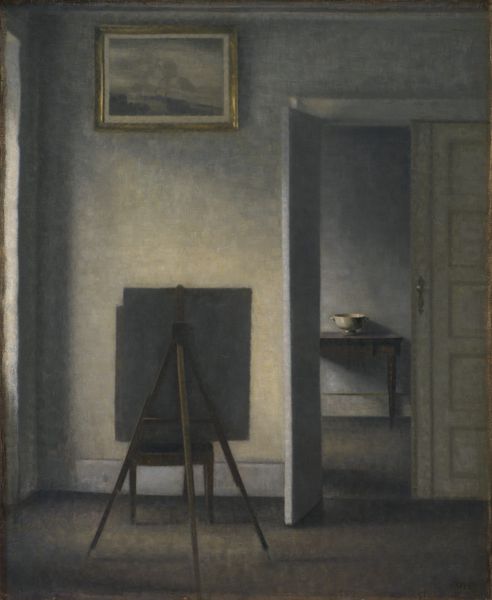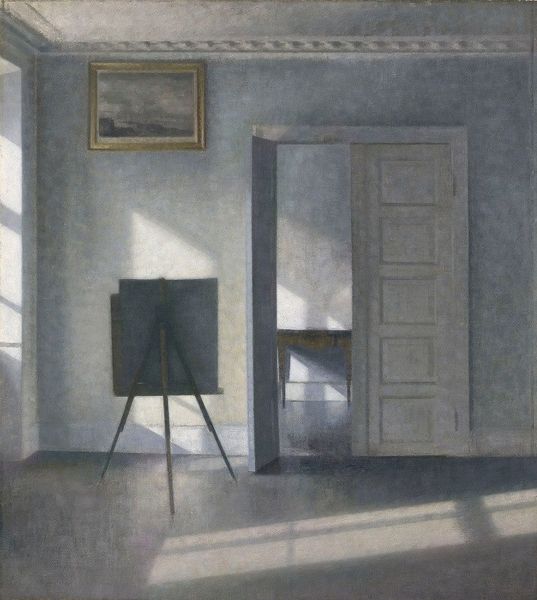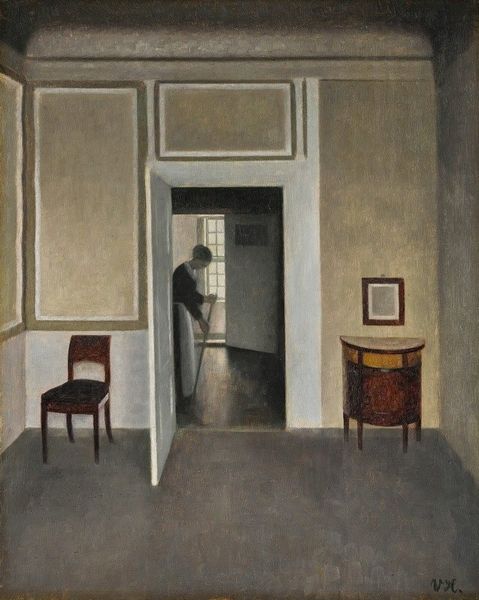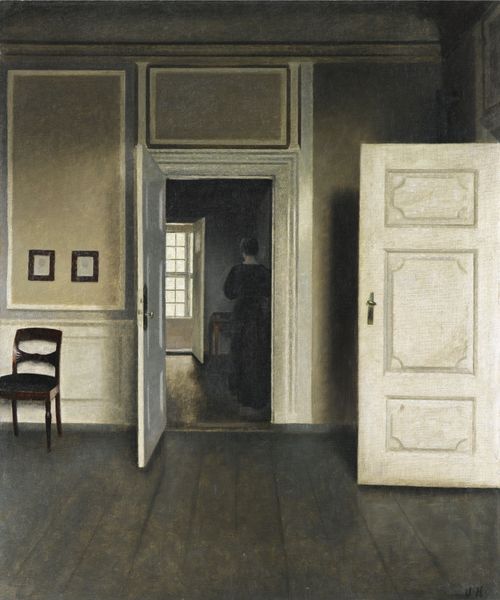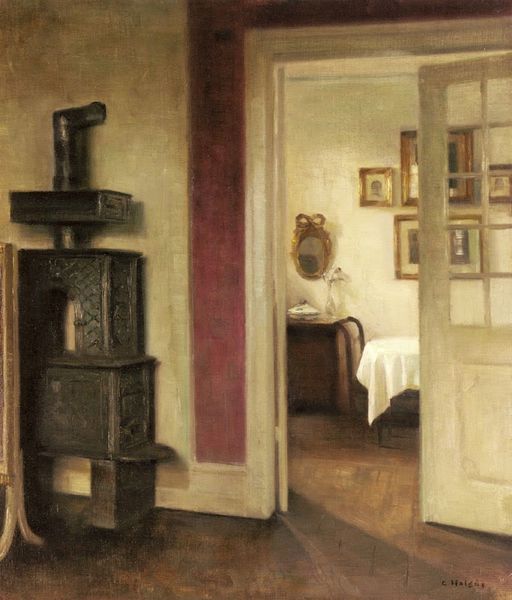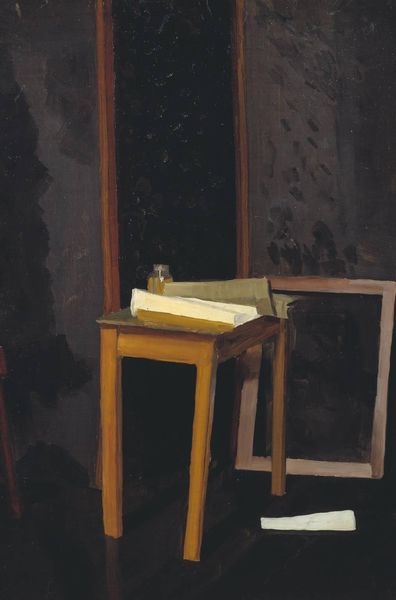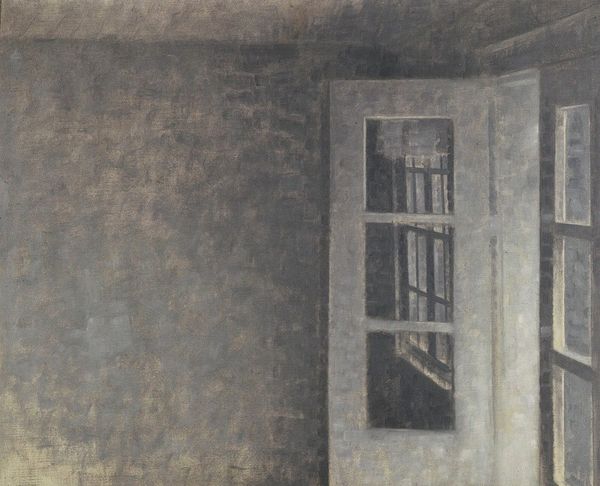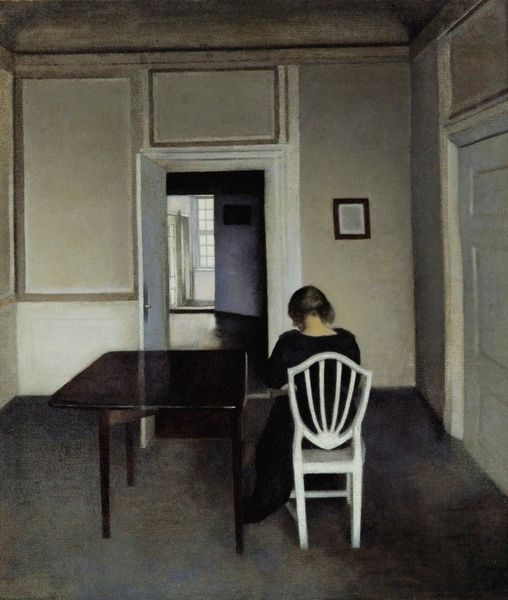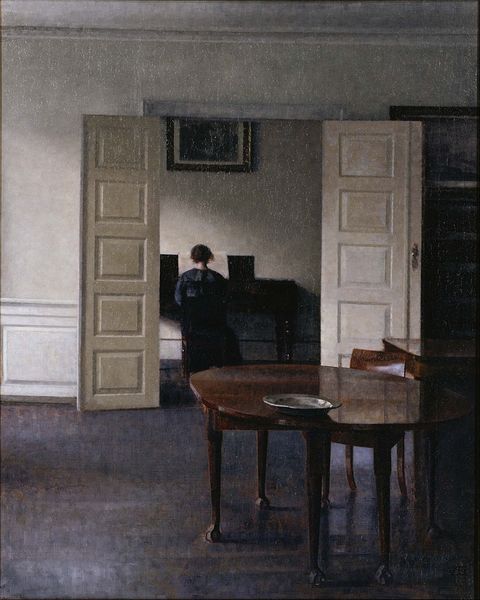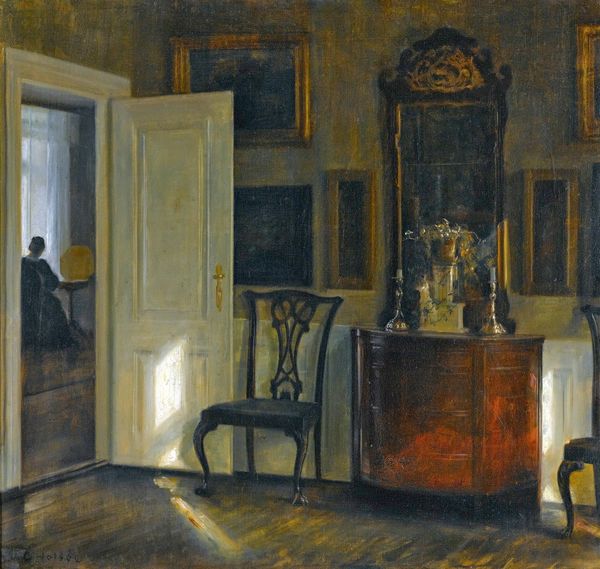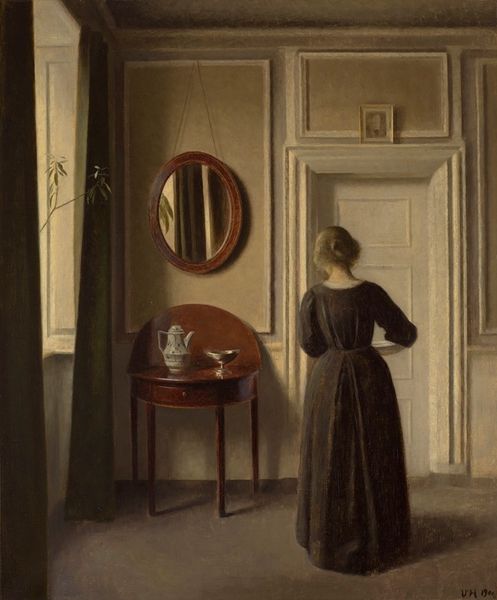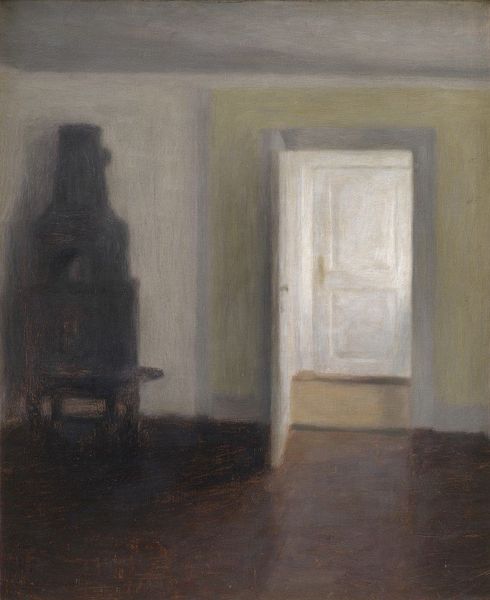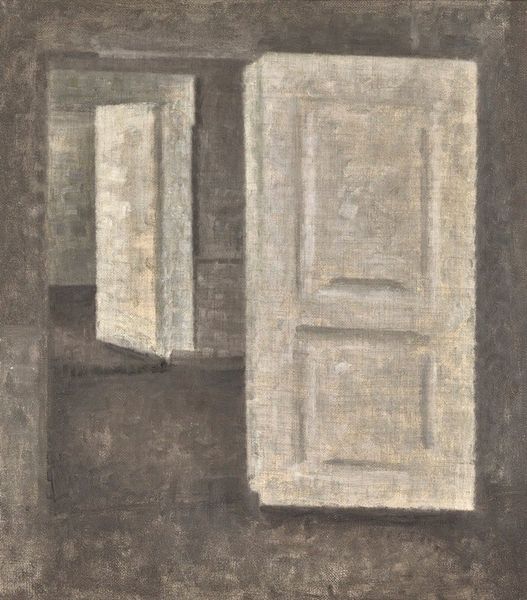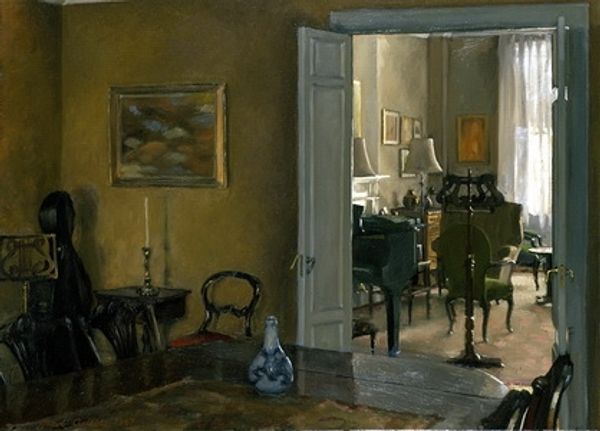
painting, oil-paint
#
portrait
#
painting
#
oil-paint
#
landscape
#
muted light
#
earthy tone
#
romanticism
#
modernism
Copyright: Public Domain: Artvee
Vilhelm Hammershøi painted ‘Interior with the Artist’s Easel’ sometime around the turn of the 20th century. It encapsulates the introspective mood that defined much art made in Europe at this time. The painting depicts a spare, almost monastic interior, typical of the artist's work, in shades of grey. Hammershøi, who was Danish, belonged to a generation reacting against the large-scale historical painting favoured by the art academies, and the realism promoted by the French Impressionists. Instead, he turned to quiet domestic scenes, influenced by 17th-century Dutch masters, and also by the Symbolist movement, which favoured personal expression over social commentary. This move inwards was also a reflection of the political mood in Europe, which was dominated by nationalism and anxieties about modernity. To understand Hammershøi better, scholars have looked at the exhibition culture of Copenhagen, and the influence of its art academy, using sources such as exhibition catalogues, newspaper reviews, and artist biographies to explore how he navigated the art world of his day. In this way we can appreciate his artistic choices as both personal and historical.
Comments
No comments
Be the first to comment and join the conversation on the ultimate creative platform.
